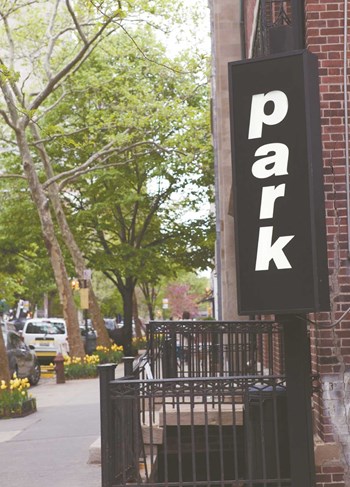
Owners of condominiums and cooperatives in urban areas of New Jersey like Hoboken or Jersey City with parking garages in or adjacent to their building are blessed in so many ways. The ability to drive right up to your front door provides a level of satisfaction almost beyond words.
And when the garage is open to the public, according to Kristen Sokich, executive vice president of ProPark America, a nationwide garage management company, “typically, the garage is the biggest revenue generator in the condominium. And the more efficiently it’s run, the better it generates. The more money they can squeeze out of it, the more benefit it brings to the overall building.”
Management Options
There are two ways to run a parking garage. The building can keep tight control of the facility by simply contracting a management company to run the operation while they hold on to the business. The building carries all the expenses and collects all the revenue.
This approach allows the board of directors and management to dictate every aspect of the garage on an ongoing basis—to determine, say, how much preference to give residents in terms of guaranteed allotted parking spaces and discounts for parking in the facility. And it lets them choose the types of services it will offer, like valet parking, jump-starting cars, inflating tires and car washing. But it also leaves them in charge of a very complicated business for which none of them, most likely, is equipped.
The vastly more popular choice is to lease the garage outright—to rent the garage to a private management company, collecting a fixed monthly fee and leaving day-to-day operations and bookkeeping up to them. “You find the right guy at the right price and let him figure out how to make money,” advises Abe Liebb, owner of Prompt Parking, which manages some 70 facilities in New Jersey.
When renting the garage facility to an outside operator, it is in the best interest of the building owners to allow the parking management company to run it to its maximum profit potential, so that it maintains its market value, and to ensure that the manager keeps the rent coming. In urban centers especially, like Trenton or the towns near New York City, areas where the big money maker for the garage is the hourly or daily parking, that means residents are generally not assigned reserved spots per se and they pay monthly fees comparable to those any outsider would pay.
That doesn’t mean the building cannot negotiate for some privileges for residents in the contract. “It’s a decision that the board needs to make,” says Sokich. “Do they want to offer discounted rates to residents or treat it as any other business? The more money they can squeeze out of it the more benefit it brings the overall building.”
“It’s a mixed bag,” says attorney Richard Siegler, of counsel at the Manhattan-based law firm of Stroock & Stroock & Lavan, LLP, “because those who park get the benefit and those who don’t park don’t get the benefit.” That said, he adds, “most garage owners throw in a 10 percent discount.”
The New Jersey State Department of the Treasury offers another perk for condominium owners, it should be noted, exempting them from sales tax for parking on the premises in which they live. Just be sure the garage operator keeps careful records and that you keep receipts. The tax rules stipulate that, “For parking facilities that provide both residential and non-residential parking, the operator or parking vendor must keep a record of the sale including the name of the resident, the residential address of the resident, and the amount of the sale in order to substantiate that the sale is for residential parking purposes.”
Maintenance is Key
With underground garages, according to attorney Kevin Smith, a partner with Stroock, “the biggest problem big buildings face is maintenance. That’s where picking the right operator and negotiating a strong operating agreement becomes very important.”
A failure to properly maintain the structure of the garage, which, of course, is owned by co-op or condo, could be disastrous. It could lead to expensive repairs, payable by the building, and disruption in the use of the garage, with the inconvenience and expense that entails. But most important, it can damage the columns of the building. Salt can penetrate the steel rebar around the columns, causing them to rust and deteriorate and eventually compromise the building’s foundation.
Scrupulous maintenance is essential especially in winter. “When you walk into garages you see that most of the damage is where the cars come in because that’s where the salt comes off the wheels,” says Smith—“and that’s where it infiltrates the concrete.”
Proper maintenance of the parking garage, says Smith, “usually means it’s going to cost the operator money for keeping a coating on garage floors, making sure the repairs get made, painting, cleaning, making sure the drains work—all that stuff costs money.”
In the end, advises Smith, “it means you don’t make a deal with the cheapest guy. You find somebody who knows what they’re talking about in terms of maintenance. And make sure you have very harsh provisions for maintaining the premises.”
Duties of the Management Company
The other responsibilities of the garage operator include security, lighting, snow removal at the entrance of the garage and on the ramp and keeping the mechanisms working, including the entrance door and elevator.
“But if there is a leak from the sewer system or from a pipe in the apartment above or concrete is falling,” says Liebb, “that would be the responsibility of the owner of the co-op.”
If the garage is not submetered, the lease should factor in an estimated cost for electricity payable by the operator.
Buildings need to make sure the operator has sufficient insurance to protect the co-op from liability in the case of someone getting hit by a car or damage to cars. “You always need garage keepers legal liability insurance,” a special policy that covers customers’ vehicles and personal liability, says Sokich. “If the garage is poorly laid out, which is very typical nowadays, claims may be high. It could raise the operator’s premium and is not good for business.”
Another factor to consider when contracting a garage management company is their marketing capability—that they know how to keep a garage full and profitable, and that they are motivated to do so. “Some companies might have a conflicting interest,” cautions Sokich, which might be the case with the biggest players in the market. “In certain neighborhoods they may have three or four garages and if they start marketing too heavily for the building it may take away from their existing business down the block.”
Another way to raise money for the cooperative or condominium from the garage facility is convert that portion of the building into a separate entity, a commercial condo, and sell it outright. The sale of such a valuable piece of property could be a quick fix for an ailing reserve fund. But experts agree it should be considered a last resort.
“We’ve done some deals where we’ve seen garages made into a separate condo and sold off,” says Siegler, “but most co-ops do not want to do it because it’s a good source of income.” Besides, in today’s market it could prove to be a disappointing endeavor for the corporation. “A lot of them think it is still the heyday of two or three years ago, before the recession hit,” observes Sokich, “so they are overvaluing these properties, and then they wind up sitting on them—getting zero offers or ridiculously low offers. It a function of the economy like anything else.”
Managing the Management
The first area of the building many potential buyers and visitors experience—providing their first and lasting impression—the parking garage must be routinely inspected by building management. Any deficiencies in upkeep should be reported immediately to the garage manager.
A good time to inspect the garage is first thing in the morning, before it fills up. Make sure there is no litter, excessive oil spots, full trash cans or odors. Stairwells and elevator cabs should be clean and bright. Good lighting in all areas is especially important for providing a sense of security. “If you have people, especially women, coming in at night it has to be extremely well lit,” says Liebb. “Proper lighting is the lifeline of the garage.” Plus, it reduces the risk of liability claims due to slip-and-fall injuries.
After the initial effort of negotiation and contracting with a garage management company, and aside from the routine monitoring of the facility, a parking garage is a relatively hassle-free operation for the corporation. And it’s a huge asset for even those without cars. “It’s a big attraction,” says Siegler. “It enhances the value of units.”
Steven Cutler is a Manhattan-based freelance writer and a frequent contributor to The New Jersey Cooperator.






Leave a Comment